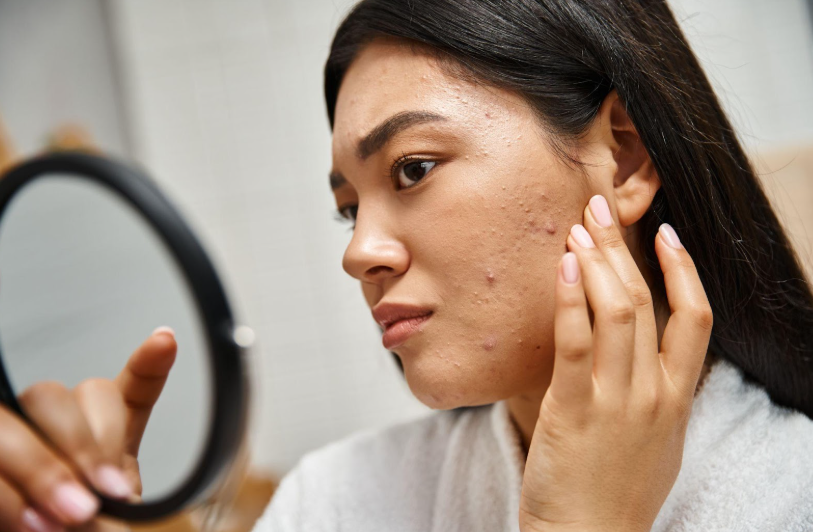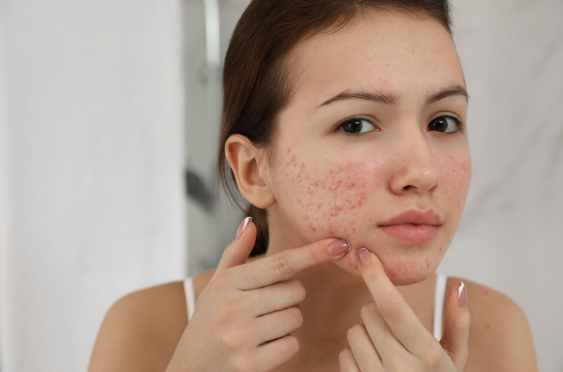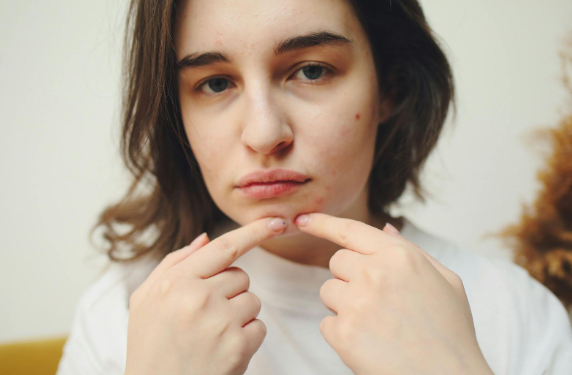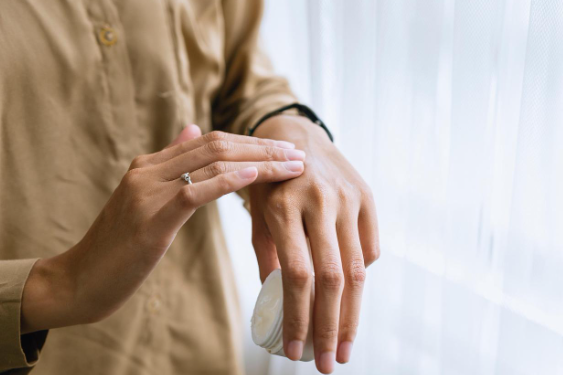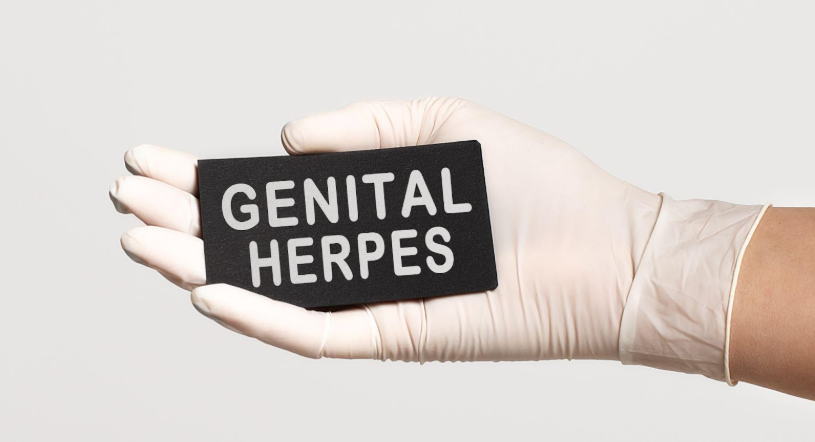5 Things to Know About Psoriasis

Our skin is the largest organ in our body. The skin is the most sensitive and vital part of our body, but can often be the most neglected one. The skin not only acts as a barrier against mechanical and physical injuries but also protects against harmful ultraviolet radiations and helps regulate body temperature.
By paying attention to the skin's needs and taking care of it by hydrating and moisturizing it regularly, one can avoid skin diseases like psoriasis.
Psoriasis is painful and takes a toll on physical as well as mental health, as people may find it embarrassing and limit themselves from doing various activities involving skin exposure.
What is Psoriasis?
Psoriasis is a chronic skin disorder in which skin cells multiply rapidly, forming red and white patches on the skin. Usually, new skin cells grow and replace the old outer layers which are shed naturally every four weeks. However, that is not the case with psoriasis.
In psoriatic skin, new cells rapidly move to the skin's surface, forming plaques that mostly appear on the hands, knees, elbows, scalp, feet, and lower back. Fingernails and toenails are also affected by psoriasis, causing pitting and discoloration of nails. This disease is not limited to just adults; teens can also suffer from this skin disorder. Although psoriasis occurs due to a combination of external factors and predisposed genes, flare-ups can be controlled and managed with continuous treatment and proper medication.
Causes of Psoriasis
- Psoriasis occurs if the immune system overreacts.
- At times, it is hereditary and runs in the family.
- Extreme cold climate, stress, anxiety, infection, or side effects of certain medicines can cause inflammation and result in the skin acting up.
The symptoms of psoriasis can vary from person to person. The skin might get red and inflame suddenly, and the rashes could also disappear without treatment. No particular test is needed to diagnose psoriasis. Dermatologists can easily diagnose it by looking at the patch-like plaques on the skin, nails, or scalp.
How is Psoriasis Treated?
The best way to treat psoriasis is to follow a set skincare routine.
- If the psoriasis is mild, keep the skin moist and hydrated by using lotions and creams which contain mild ingredients like aloe vera which calm and soothe the skin.
- Short exposure to sunlight can be beneficial. However, overexposure can affect the skin and lead to skin cancer.
- If psoriasis is difficult to treat, it is best to consult a dermatologist and take medicines.
- Psoriasis treatment may continue for a lifetime. Try a combination of skin products, medicines, and UV light exposure treatments to know what works best for your skin.
- Stress, anxiety, alcohol, and smoking can result in the rashes flaring up and worsening of symptoms. It is best to stay away from these substances and keep a check on mental health to prevent flare-ups.
5 Things to Know About Psoriasis
Psoriasis Is an Inflammatory Skin Disorder That Can Affect Adults and Teens and Opens Doors to Several Other Diseases
It is a myth that psoriasis only affects adults. It is quite common among teenagers. It starts as a skin irritation where the skin becomes red and itchy, and then develops rashes. It soon progresses into forming scales or plaques on all body parts, including the scalp, elbows, and knees. A dermatologist can easily diagnose psoriasis by looking at the skin. Further, conducting a skin biopsy or going through family history to see if this skin condition is hereditary can confirm the diagnosis.
Psoriasis Is Very Different from Eczema
Psoriasis and atopic dermatitis (eczema) are different and should not be confused as the same. Sharper rash borders and thicker scaling are what distinguish psoriasis from atopic dermatitis. Atopic dermatitis is very itchy, not quite well defined, and is present all over the body, especially in the folds of arms and legs.
Psoriasis Isn’t Contagious
Psoriasis shatters a person’s confidence and self-esteem. People tend to corner and keep a safe distance from patients suffering from psoriasis. However, it is not contagious, i.e., it does not spread if you come in contact with a patient with psoriasis. It is non-infectious and most of the time hereditary.
The Cause of Psoriasis Is Still Not Known, But Research Is in Progress
The research on the root cause of psoriasis is ongoing. There is yet a lot more to be discovered about this disease.
Through research, the inflammatory pathways involved in psoriasis have been found and several factors like medication, neglecting the skin, infection, and stress have been identified as potential causes for flare-ups.
Psoriasis Treatments Have Improved by Leaps and Bounds in the Last Decade
Based on the condition of psoriasis, the treatment is defined. If the rashes are not that severe, the treatment is mild. But if the plaques cover more than 10-30% of the total body surface, dermatologists usually recommend a systemic treatment of oral and injectable medication.
How is Psoriasis a Gateway Illness?
Psoriasis is an autoimmune condition. It causes the white blood cells to become overactive and produce chemicals that trigger the skin, resulting in red and white patches. The skin is not the only organ that it affects. It also causes:
Heart Disease
Psoriatic patients are up to 3 times more likely to have heart problems than the average person. This is because psoriasis causes inflammation of blood vessels, which often leads to atherosclerosis, a condition that refers to the building up of a fatty substance called plaque on the inner side of the artery walls. This plaque interrupts the free flow of blood, thus resulting in heart disease that could even lead to heart attacks!
Another common observance is that some medications prescribed for psoriasis may cause irregular cholesterol levels, leading to thickened arteries that again contribute to heart disease.
Psoriatic Arthritis
Even mild psoriasis can lead to significant arthritis, referred to as Psoriatic Arthritis. It often causes morning stiffness, alongside occasional flare-ups that can sometimes require treatment, but usually subside on their own. Symptoms of this condition include joint pain, stiffness, and swelling.
Pulmonary Problems
Psoriatic patients are at a high risk of developing various lung disorders such as Chronic Obstructive Pulmonary Disease (COPD), Pulmonary Sarcoidosis, and Interstitial Lung Disease (ILD). Watch out for symptoms like shortness of breath, chest pains, chronic cough and mucous production, and wheezing.
Cancer
Scientists have discovered that individuals with psoriasis are more likely to develop cancers of the colon, larynx, kidney, liver, esophagus, and pancreas. They are also at a higher risk of developing non-Hodgkin’s lymphoma and oral cancer.
Metabolic Irregularities
Research has confirmed that there is a link between various metabolic issues and psoriasis. People with damaging lifestyle habits such as excessive alcohol consumption, smoking, obesity, etc. are also at a higher risk in this category.
Key Takeaways
- Psoriasis is a chronic disease, the cure for which is yet to be found.
- The skin’s nutrition and protection must not be taken lightly.
- New skin cells multiply very quickly in psoriasis and form red and white patches on the skin.
- Psoriasis can be genetic. One can be affected by the disease if it runs in the family.
- Inflammation can be caused by extremely cold or hot climates, stress, anxiety, infection, or side effects of certain medicines.
- Psoriasis is an inflammatory skin disorder that leads to several other diseases.
- Psoriasis is neither infectious nor contagious.
- Psoriasis causes thicker scaling of the skin and is quite different from Eczema.
- Research to understand the cause and cure of the disease is still incomplete.
- Overexposure to the sun can damage and scar the skin, leading to other incurable diseases.
- Psoriasis is a gateway illness that can put an individual at risk for various other conditions.
If you are at risk of psoriasis or are experiencing any of the symptoms associated with it, please speak to a dermatologist today!
